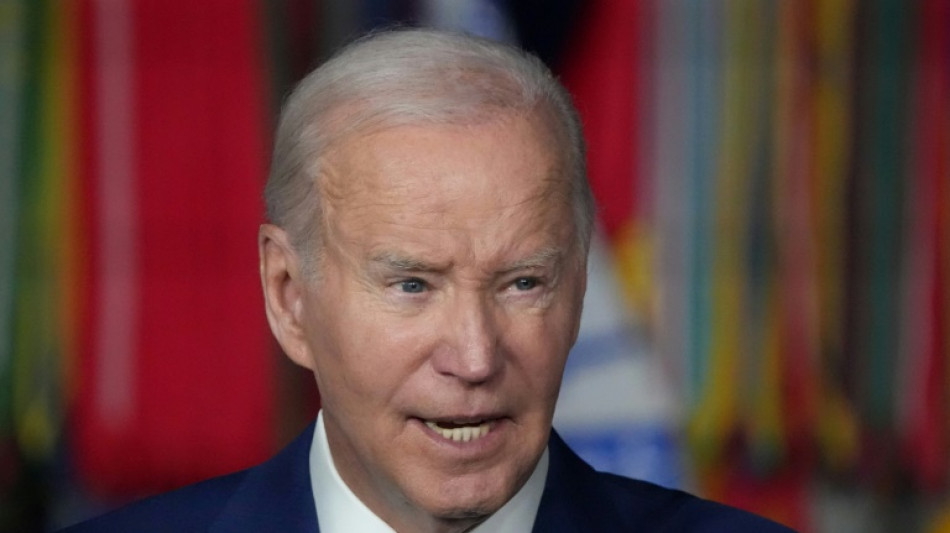Former US president Joe Biden's prostate cancer is likely too advanced to be cured but treatment could control the spread of the disease for years, experts told AFP.
The revelation late Sunday that the 82-year-old has aggressive prostate cancer has prompted supportive statements -- as well as questions about the state of his health during his presidency and aborted re-election bid last year.
- What is the diagnosis? -
After he experienced urinary symptoms, Biden was diagnosed with prostate cancer that has spread to his bones, the ex-president's office said in a statement.
Prostate cancer is the most common cancer among men, according to the American Cancer Society.
It is particularly common in the elderly -- around 80 percent of men over 80 have some cancerous cells in their prostate gland, research has estimated.
While it is the second leading cause of cancer death in men, prostate cancer is highly treatable if discovered early.
However Biden's prostate cancer is already well advanced, having spread to his bones, meaning it has metastasised.
It is also particularly aggressive. His cancer was rated nine out of a possible 10 on the Gleason score, which ranks the aggressiveness of cancer.
To get this score, doctors take several samples -- called biopsies -- of the prostate to measure how dangerous the cancer is.
A Gleason score of nine "means that the cells look very abnormal and the cancer is likely to grow quickly", Justin Stebbing, a cancer researcher at the UK's Anglia Ruskin University, told AFP.
- Prognosis and treatment? -
Much remains unknown about Biden's condition, and the experts interviewed by AFP emphasised that they can only provide a broad outline.
Around 97 percent of men diagnosed with prostate cancer are still alive five years later.
However this rate drops to 28-33 percent when the cancer has spread to their bones, Stebbing said.
"Metastatic prostate cannot be cured," oncologist Natacha Naoun of France's Gustave-Roussy Institute told AFP. "But treatment can increase life expectancy."
Biden's statement said he is reviewing treatment options, adding that his cancer appears to be "hormone-sensitive which allows for effective management".
Stebbing said that drugs that reduce hormones such as testosterone can temporarily control the disease.
But after two or three years, "hormonal therapy stops working, and we need to think about other treatments", he added.
Chemotherapy is often an option in such cases but could pose a serious risk for a patient in his 80s.
"Maybe he's not strong enough to withstand that, or has other conditions, but this is pure speculation," Stebbing said.
Radiation therapy or surgery are other potential treatment options, depending on the nature of the cancer.
- Could this have been detected sooner? -
The ex-president's medical diagnosis could also have political repercussions.
Biden's health was already in the spotlight due to a new book detailing his declining health as he campaigned for a second presidential term against Donald Trump last year.
The revelation of such an advanced cancer in a man under such close medical scrutiny has raised the question: could signs of this disease have been detected earlier?
"Not necessarily," Stebbing said.
"Without more details, it's impossible to say... certainly a lot can happen with this type of prostate cancer in a year," he added.
Biden withdrew his re-election bid in July last year, and left the White House in January.
"We can't rule out the possibility that it was an aggressive form that developed quickly," Naoun said.
But prostate cancer is normally diagnosed earlier, she added.
"Only 10 percent of prostate cancers are diagnosed" at this metastatic stage, Naoun said.
C.Timmermans--LCdB
